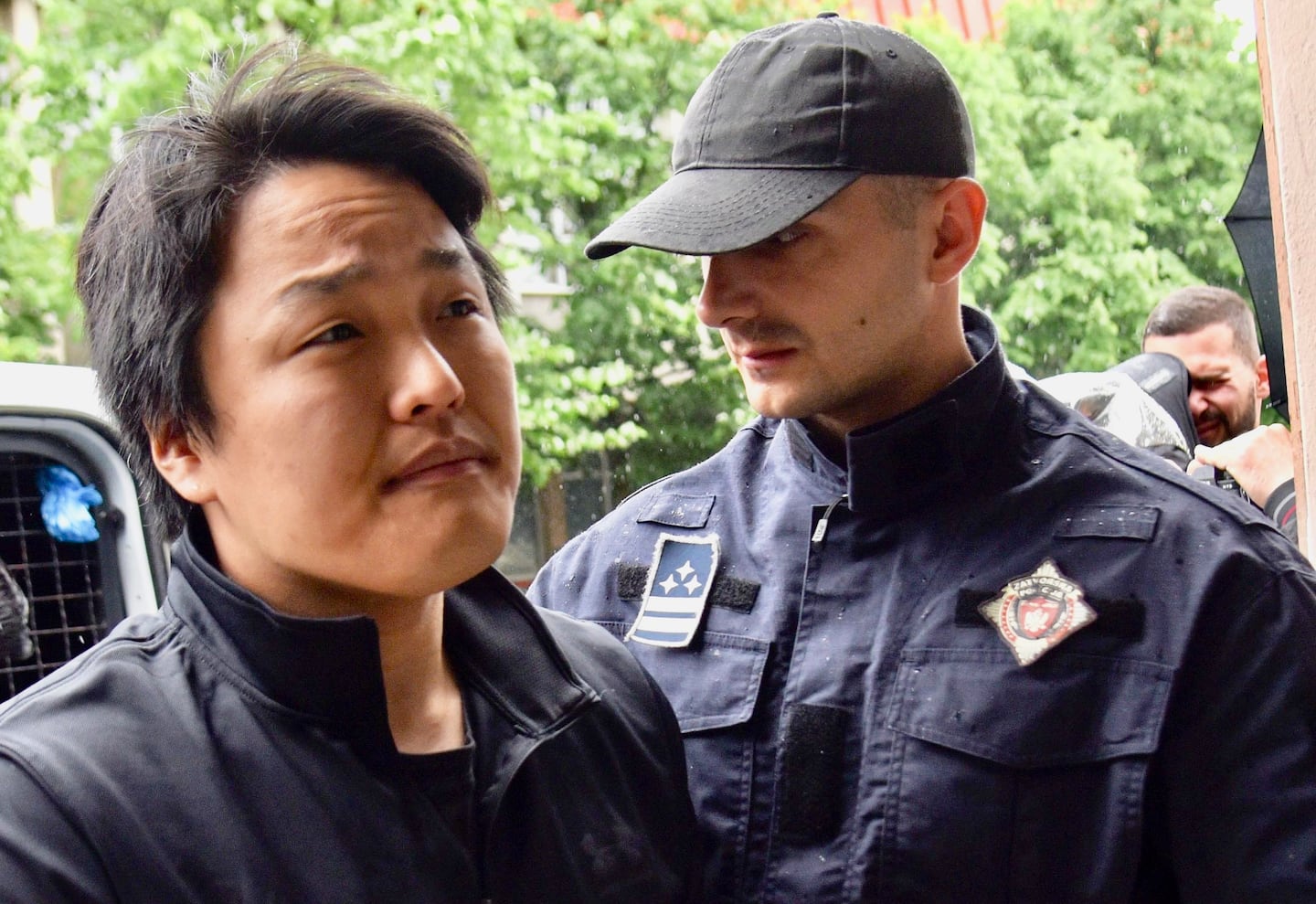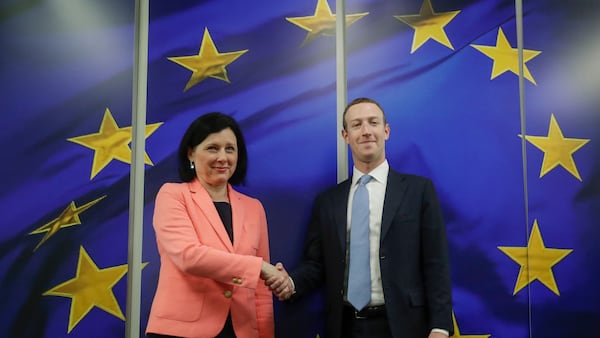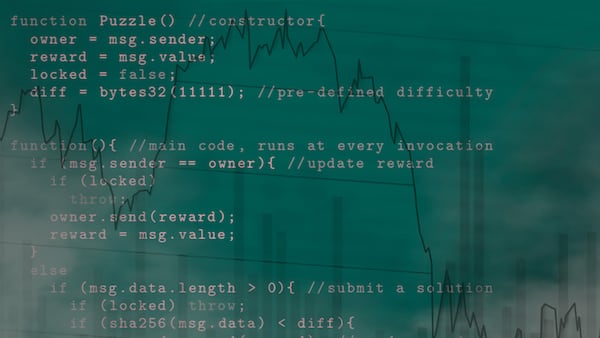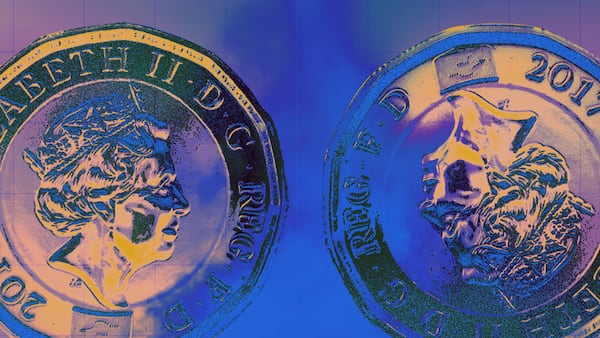- Daniel Shin assembled a team of more than 30 attorneys from five of the country’s top law firms
- South Korean prosecutors allege the Wharton grad and onetime McKinsey analyst committed fraud, embezzlement, and market manipulation.
- Hearing postponed after Shin’s legal team say they need more time to prepare.
- Co-founder Do Kwon sits alone in a Balkan prison awaiting outcome of extradition proceedings.
As Do Kwon sits alone in a prison cell in the Balkans, the trial for his fellow co-founder of Terraform Labs is just beginning in a courtroom halfway around the world.
Daniel Shin was the other guy in the meteoric rise of Terra and its blockchain-based ecosystem, which crested at a $60 billion market capitalisation before crashing in May 2022.
When South Korean prosecutors investigated the collapse last year, Kwon fled his Singaporean base and went underground for months as a fugitive. Shin stayed put in South Korea.
Now the Ivy League-educated entrepreneur is facing justice in a South Korean courtroom. And he’s assembled a team of more than 30 attorneys from five of the country’s top law firms, according to local media reports.
Litany of charges
The charges in the prosecutor’s April 25 indictment against him and several other members of Terra’s team include fraud, breach of duty, embezzlement and violation of South Korea’s Capital Markets Act.
Prosecutors allege that Shin participated in market manipulation by selling pre-issued Luna tokens before their crash, resulting in profits of 140 billion won ($104 million) without proper disclosure.
NOW READ: Do Kwon’s new home: an overcrowded Balkan prison with mafia suspects and little hope
They also claim that another of his companies, Chai Corporation, a payment technologies firm, misused customer’s personal data without consent to get Terra’s payment integration business off the ground.
Shin and his lawyers, which reportedly include former prosecutors and judges, have denied all the charges.
Anticipated reckoning
At a preliminary hearing in the Seoul Southern District Court on Monday, Shin’s lawyers argued they needed more time to prepare and proceedings were postponed until August 28.
It was the second delay in a much anticipated reckoning for Shin. The initial hearing was scheduled for May 26 but was delayed after it was revealed that the chief judge, a former business journalist, had profiled Shin in 2010.

In contrast to Kwon, 31, a publicity-hungry entrepreneur who couldn’t resist doing online interviews and posting on social media even when he was wanted by Interpol, Shin has kept a low profile since the fall of Terra.
A graduate of the University of Pennsylvania’s Wharton School and an e-commerce entrepreneur, Shin founded Terraform Labs in 2018 alongside Do Kwon (Kwon Do-hyeong). Though the latter often took the spotlight, Shin, 38, was arguably the more experienced businessman.
Unicorn status
After a stint as an analyst at McKinsey, Shin founded TMON (Ticket Monster) in 2010, a popular e-commerce platform that offers deals on products to Korean consumers. In 2017, it raised $115 million at a valuation of $1.2 billion, catapulting it to unicorn status.
He was also a co-founder at Fast Track Asia, a company helping Western companies expand into Asia, and a co-founder of venture capital firm BASS Investment.
Shin’s initial attraction to blockchain was its potential to lower payment costs for e-commerce platform providers and customers while remaining secure and sustainable.
NOW READ: It’s not just Bitcoin. These finance giants are ‘chomping at the bit’ to deploy DeFi
He argued in a 2019 interview with The Korea Times that although some providers offered lower transaction fees, “there weren’t many alternatives once you took into account key aspects such as sustainability, stability, trust, security, speed and convenience.”
“But what if you could utilise blockchain technology to reduce intermediaries and create a payment system that is safer, faster, more convenient and of course cheaper? That could be a game changer for many e-commerce companies,” he said.
Shin leaves Terra
Some of Terra’s earliest partnership announcements were with Shin’s other businesses, including Chai Corporation and TMON. He also spearheaded a project between Terra and the Mongolian government to create a peer-to-peer payment system for the country.
But in late 2019, Shin left Terra for undisclosed reasons and appeared to renew his focus on Chai Corp. It integrated Terra’s won-pegged stablecoin in 2019 but claims it had no relationship with TFL after early 2020.
Perhaps he and Kwon had differences in how they wanted the company to develop. In interviews, Shin discussed ecommerce and payments. Kwon, a Stanford computer science major, seemed more interested in experimenting with blockchain technology.
NOW READ: EXCLUSIVE: Police seize $2.2m Belgrade apartment where Do Kwon hid during six-month manhunt
Nevertheless, the director of Seoul Southern District Prosecutors’ Office’s financial crime team, Dan Sung-han stated in April he believes Shin played a larger role in the fraud than Kwon, alleging that Shin made it look as if fiat payments on Chai Corporation were actually processed using Terra.
The prosecutor’s team has submitted arrest warrants to the court for Shin twice but they have been rejected and Shin has remained free.
Organised crime suspects
Kwon, meanwhile, is incarcerated in the pre-trial detention wing of Spuz Prison in Montenegro. Months after fleeing Singapore in 2022, he and an associate were caught trying to leave the Balkan state on a private jet with a forged Costa Rican passport. In June, DL News reported that the prison is overcrowded and houses numerous organised crime suspects and convicts.
Kwon and Han Chang-Joon were convicted in June on the passport charge and are now detained as South Korean and US prosecutors seek extradition. A US grand jury indicted Kwon earlier this year on fraud charges.
Have a tip on Asian crypto? Contact the author at callan@dlnews.com.



